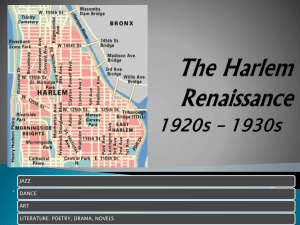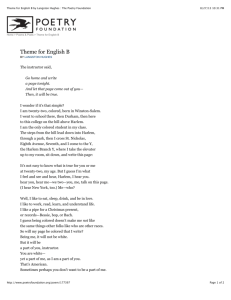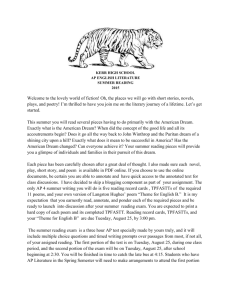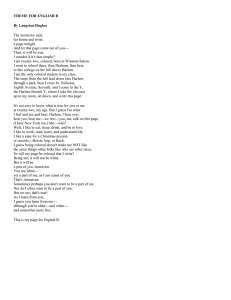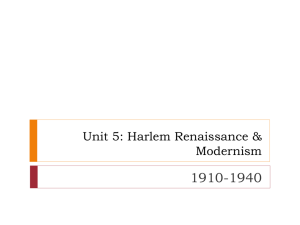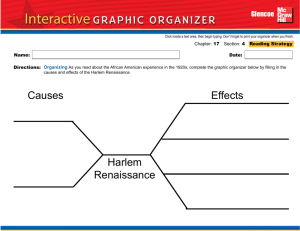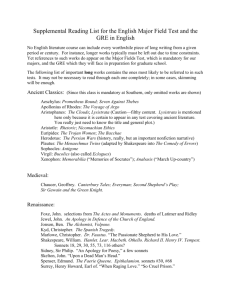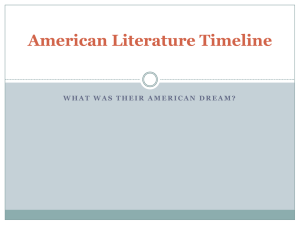POETRY AS A SOCIAL COMMENTARY
advertisement
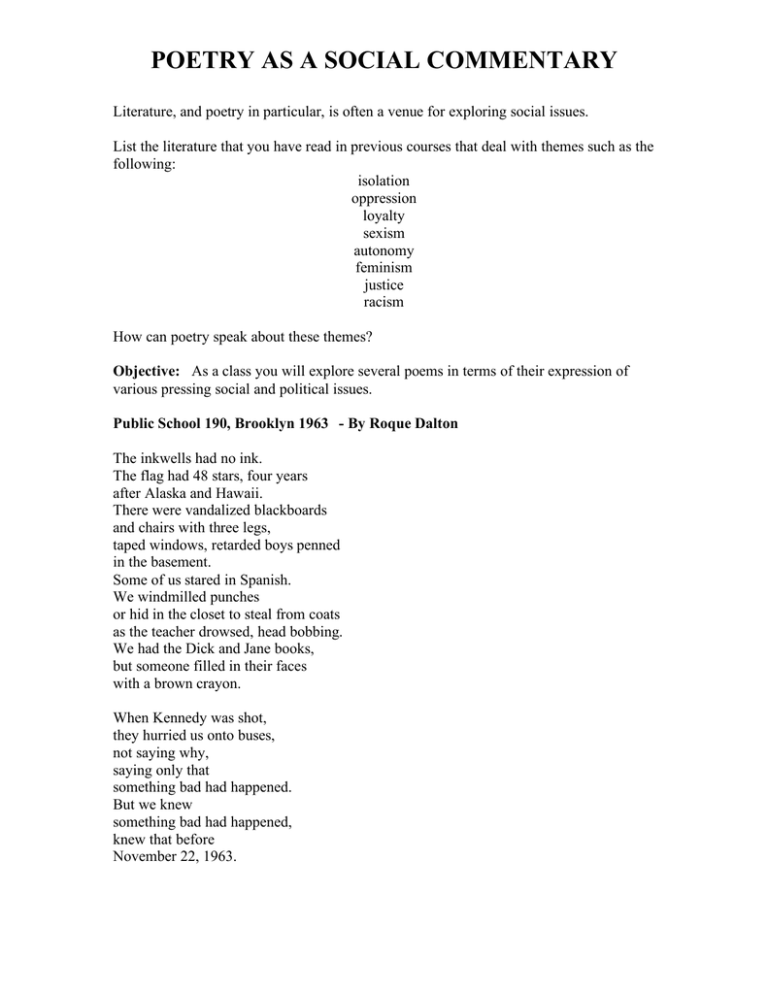
POETRY AS A SOCIAL COMMENTARY Literature, and poetry in particular, is often a venue for exploring social issues. List the literature that you have read in previous courses that deal with themes such as the following: isolation oppression loyalty sexism autonomy feminism justice racism How can poetry speak about these themes? Objective: As a class you will explore several poems in terms of their expression of various pressing social and political issues. Public School 190, Brooklyn 1963 - By Roque Dalton The inkwells had no ink. The flag had 48 stars, four years after Alaska and Hawaii. There were vandalized blackboards and chairs with three legs, taped windows, retarded boys penned in the basement. Some of us stared in Spanish. We windmilled punches or hid in the closet to steal from coats as the teacher drowsed, head bobbing. We had the Dick and Jane books, but someone filled in their faces with a brown crayon. When Kennedy was shot, they hurried us onto buses, not saying why, saying only that something bad had happened. But we knew something bad had happened, knew that before November 22, 1963. “The Colonel” by Carolyn Forche What you have heard is true. I was in his house. His wife carried a tray of coffee and sugar. His daughter filed her nails, his son went out for the night. There were daily papers, pet dogs, a pistol on the cushion beside him. The moon swung bare on its black cord over the house. On the television was a cop show. It was in English. Broken bottles were embedded in the walls around the house to scoop the kneecaps from a man's legs or cut his hands to lace. On the windows there were gratings like those in liquor stores. We had dinner, rack of lamb, good wine, a gold bell was on the table for calling the maid. The maid brought green mangoes, salt, a type of bread. I was asked how I enjoyed the country. There was a brief commercial in Spanish. His wife took everything away. There was some talk then of how difficult it had become to govern. The parrot said hello on the terrace. The colonel told it to shut up, and pushed himself from the table. My friend said to me with his eyes: say nothing. The colonel returned with a sack used to bring groceries home. He spilled many human ears on the table. They were like dried peach halves. There is no other way to say this. He took one of them in his hands, shook it in our faces, dropped it into a water glass. It came alive there. I am tired of fooling around he said. As for the rights of anyone, tell your people they can go fuck themselves. He swept the ears to the floor with his arm and held the last of the wine in the air. Something for your poetry, no? he said. Some of the ears on the floor caught this scrap of his voice. Some of the ears on the floor were pressed to the ground. To the Pay Toilet – Marge Piercy You strop my anger, especially when I find you in restaurant or bar and pay for the same liquid, coming and going. In bus depots and airports and turnpike plazas some woman is dragging in with three kids hung off her shrieking their simple urgency like gulls. She's supposed to pay for each of them and the privilege of not dirtying the corporate floor. Sometimes a woman in a uniform's on duty black or whatever the prevailing bottom is getting thirty cents an hour to make sure no woman sneaks her full bladder under a door. Most blatantly you shout that waste of resources for the greatest good of the smallest number where twenty pay toilets line up glinty clean and at the end of the row one free toilet oozes from under its crooked door, while a row of weary women carrying packages and babies wait and wait and wait to do what only the dead find unnecessary. THEME FOR ENGLISH B By Langston Hughes The instructor said, Go home and write a page tonight. And let that page come out of you--Then, it will be true. I wonder if it's that simple? I am twenty-two, colored, born in Winston-Salem. I went to school there, then Durham, then here to this college on the hill above Harlem. I am the only colored student in my class. The steps from the hill lead down into Harlem through a park, then I cross St. Nicholas, Eighth Avenue, Seventh, and I come to the Y, the Harlem Branch Y, where I take the elevator up to my room, sit down, and write this page: It's not easy to know what is true for you or me at twenty-two, my age. But I guess I'm what I feel and see and hear, Harlem, I hear you: hear you, hear me---we two---you, me, talk on this page. (I hear New York too.) Me---who? Well, I like to eat, sleep, drink, and be in love. I like to work, read, learn, and understand life. I like a pipe for a Christmas present, or records---Bessie, bop, or Bach. I guess being colored doesn't make me NOT like the same things other folks like who are other races. So will my page be colored that I write? Being me, it will not be white. But it will be a part of you, instructor. You are white--yet a part of me, as I am a part of you. That's American. Sometimes perhaps you don't want to be a part of me. Nor do I often want to be a part of you. But we are, that's true! As I learn from you, I guess you learn from me--although you're older---and white--and somewhat more free. This is my page for English B. 1951
